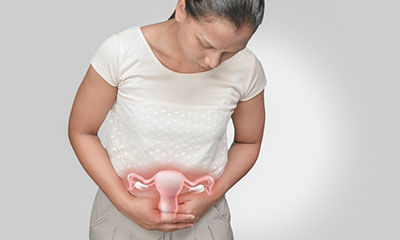Normal Ovary Size In Mm
Hi, I am 28 years old unmarried. My right ovary size is (48×27 mm). 24×22 mm cyst in right ovary. Endometrial thickness ...
Ask Free Question
Pcod/pcos is a common hormonal disorder in women which can lead to weight gain and irregular periods. While most women depend on pills to deal with it, these simple changes in your lifestyle will help you deal with the condition in a better way. 1.Nutritional approach: deficiency of micronutrients contributes to insulin insensitivity and compromise ovarian function. So, 1. Don't take tea empty stomach. Eat something like a banana (if you are not diabetic) or any seasonal fruit or soaked almonds and a glass of plain water first thing in the morning (preferably within 10 mins of waking up). No only biscuits or rusk will not do. 2. Don't overeat 3. Take your breakfast every day. Don't skip it. U should eat whatever your mother or grandparent eat in bfast. I mean to say whatever is your traditional food. If punjabi eat paratha, if belongs to south then take idli/ dosa etc. 4. Have light meals every 2 hours (in addition to your breakfast, lunch n dinner) e.g. Nariyal paani, chaach, a handful of dry fruits, a handful of peanuts, seasonal fruit (eat whole fruit not juice), a cup of curd/milk etc 5. Finish your dinner at least 2 hours before going to sleep. Take simple food like rice n dal in dinner. 6. Avoid fast foods n fried foods7. Take a lot of green vegetables n fruit. 8. Drink lot of water9. Everyday preferably sleep on same time10. Maintain active life style2. Exercise strategies: regular workouts are non-negotiable. They are essential to burn off fat stores for hormonal balance and regular ovulation. You should join a gym for weight training. Do it 2-3 times a week with at least 48 hours in between 2 sessions. Other days you can do cardio exercises like yoga, cycling, swimming etc. 3. Sleep: adequate sleep is non-negotiable too. Sleeping at a more or less fixed time every day and for an adequate number of hours is a prerequisite to keep hormones in sync. 4. De-stress yourself: love yourself more than anyone else, prioritize your health, learn to say no, take time out to exercise and relax. Pursue your favorite activities, learn a new skill, and never ignore your body signals. For more details you can consult me.
Hi sir on 16 th day my egg size on both left and right ovaries are msf and endometrium is 9 mm is it normal or not can I ...
Ask Free Question
Not normal. Any couple desirous of pregnancy and not getting same naturally must meet gynecologist or infertility specialist accepting facts that it needs many reports and different trials of treatment. Means couple must have patience and go to one in whom they have trust to stick for a long time. Till then- pregnancy can occur only one day of the cycle that is ovulation day so unprotected sex around that day only important. As only one day in month nature should be given 12-24 trials (12 to 24 months) before couple need any active management by gynecologist or infertility specialist.
I have done transabdominal ultrasound of abdomen and pelvis after 9 weeks of having sex. And my uterus size was normal w ...
Ask Free Question
Hello- if you have skipped your menses the better go for urine pregnancy test for pregnancy confirmation.
My scan result are as follow 1.the uterus is empty, normal sized and anteverted with homogeneous myometrial echotexture ...
Ask Free Question
It means polycyatic ovarian symdrome or pcos. Pcod/pcos is a common hormonal disorder in women which can lead to weight gain and irregular periods. While most women depend on pills to deal with it, these simple changes in your lifestyle will help you deal with the condition in a better way. 1.Nutritional approach: deficiency of micronutrients contributes to insulin insensitivity and compromise ovarian function. So, 1. Don't take tea empty stomach. Eat something like a banana (if you are not diabetic) or any seasonal fruit or soaked almonds and a glass of plain water first thing in the morning (preferably within 10 mins of waking up). No only biscuits or rusk will not do. 2. Don't overeat 3. Take your breakfast every day. Don't skip it. U should eat whatever your mother or grandparent eat in bfast. I mean to say whatever is your traditional food. If punjabi eat paratha, if belongs to south then take idli/ dosa etc. 4. Have light meals every 2 hours (in addition to your breakfast, lunch n dinner) e.g. Nariyal paani, chaach, a handful of dry fruits, a handful of peanuts, seasonal fruit (eat whole fruit not juice), a cup of curd/milk etc 5. Finish your dinner at least 2 hours before going to sleep. Take simple food like rice n dal in dinner. 6. Avoid fast foods n fried foods7. Take a lot of green vegetables n fruit. 8. Drink lot of water9. Everyday preferably sleep on same time10. Maintain active life style2. Exercise strategies: regular workouts are non-negotiable. They are essential to burn off fat stores for hormonal balance and regular ovulation. You should join a gym for weight training. Do it 2-3 times a week with at least 48 hours in between 2 sessions. Other days you can do cardio exercises like yoga, cycling, swimming etc. 3. Sleep: adequate sleep is non-negotiable too. Sleeping at a more or less fixed time every day and for an adequate number of hours is a prerequisite to keep hormones in sync. 4. De-stress yourself: love yourself more than anyone else, prioritize your health, learn to say no, take time out to exercise and relax. Pursue your favorite activities, learn a new skill, and never ignore your body signals. For more details you can consult me.
Hello sir/ma'am, my usg reports says, - uterus is anteverted and measured 6.2*4.1*3.3 cm in size. - endometrial echoes a ...
Ask Free Question
Yes. But you have not mentioned your symptoms. Pcod/pcos is a common hormonal disorder in women which can lead to weight gain and irregular periods. While most women depend on pills to deal with it, these simple changes in your lifestyle will help you deal with the condition in a better way. 1.Nutritional approach: deficiency of micronutrients contributes to insulin insensitivity and compromise ovarian function. So, 1. Don't take tea empty stomach. Eat something like a banana (if you are not diabetic) or any seasonal fruit or soaked almonds and a glass of plain water first thing in the morning (preferably within 10 mins of waking up). No only biscuits or rusk will not do. 2. Don't overeat 3. Take your breakfast every day. Don't skip it. U should eat whatever your mother or grandparent eat in bfast. I mean to say whatever is your traditional food. If punjabi eat paratha, if belongs to south then take idli/ dosa etc. 4. Have light meals every 2 hours (in addition to your breakfast, lunch n dinner) e.g. Nariyal paani, chaach, a handful of dry fruits, a handful of peanuts, seasonal fruit (eat whole fruit not juice), a cup of curd/milk etc 5. Finish your dinner at least 2 hours before going to sleep. Take simple food like rice n dal in dinner. 6. Avoid fast foods n fried foods7. Take a lot of green vegetables n fruit. 8. Drink lot of water9. Everyday preferably sleep on same time10. Maintain active life style2. Exercise strategies: regular workouts are non-negotiable. They are essential to burn off fat stores for hormonal balance and regular ovulation. You should join a gym for weight training. Do it 2-3 times a week with at least 48 hours in between 2 sessions. Other days you can do cardio exercises like yoga, cycling, swimming etc. Till lock down do suryanamaskar. Https://www.youtube.com/watch? V=wmhmazurgvs&feature=youtu. Be3. Sleep: adequate sleep is non-negotiable too. Sleeping at a more or less fixed time every day and for an adequate number of hours is a prerequisite to keep hormones in sync. 4. De-stress yourself: love yourself more than anyone else, prioritize your health, learn to say no, take time out to exercise and relax. Pursue your favorite activities, learn a new skill, and never ignore your body signals. For this homeopathic treatment is very effectivefor details consult online.
I have pcos and have done my follicular study scan on 10th day and right ovary follicle is 8*8 mm and left ovary has no ...
Ask Free Question
Till repeated on next up to 16 days your report is normal don't worry, size will increase in coming days.
Is size of uterus 66×44×42 mm fine for normal pregnancy. I also have pcos in left ovary. ...
Ask Free Question
Uterus size is ok. For pregnancy lot of factors are important so if required meet gynecologist or infertility specialist.
Does the uterus wall thickens when 8 weeks pregnant? I wanna know as I got an abdomen ultrasound when I was having pregn ...
Ask Free Question
The normal thickness of the endometrium changes throughout a person’s life, from childhood, through to sexual maturity, fertile years, and after menopause. Medicalnewstoday uses cookies to improve your experience and to show you personalized ads. Privacy policy. More information what to know about endometrial thickness medically reviewed by valinda riggins nwadike, md, mph — written by danielle dresden on november 19, 2019 normal thickness measurement causes of thin or thick lining symptoms treatments seeing a doctor outlook the endometrium is the lining of the uterus. It is one of the few organs in the human body that changes in size every month throughout a person’s fertile years. Each month, as part of the menstrual cycle, the body prepares the endometrium to host an embryo. Endometrial thickness increases and decreases during the process. Two hormones, estrogen and progesterone, prompt these cycles of endometrial growth and its shedding through menstruation if a pregnancy does not develop. In this article, we look at the normal range for endometrial thickness, causes of changes, and when to see a doctor. Normal thickness a healthcare provider may measure the thickness of the endometrium with an ultrasound. The normal thickness of the endometrium changes throughout a person’s life, from childhood, through to sexual maturity, fertile years, and after menopause. In imaging tests of young females who have not yet begun menstruating, the endometrium is present but smaller than it will be later in life. According to the radiological society of north america (rsna), the endometrium is at its thinnest during menstruation, when it usually measures between 2–4 millimeters (mm) in thickness. The first half of the proliferative phase starts around day 6 to 14 of a person’s cycle, or the time between the end of one menstrual cycle, when bleeding stops, and before ovulation. At this phase, the endometrium begins to thicken and may measure between 5–7 mm. As the cycle progresses and moves towards ovulation, the endometrium grows thicker, up to about 11 mm. About 14 days into a person’s cycle, hormones trigger the release of an egg. During this secretory phase, endometrial thickness is at its greatest and can reach 16 mm. Pregnancy endometrial thickness is important in pregnancy. Healthcare experts link the best chances for a healthy, full-term pregnancy to an endometrium that is neither too thin nor too thick. This allows the embryo to implant successfully and receive the nutrition it needs. The endometrium gets thicker as the pregnancy progresses. Menopause the rsna also state that in healthy postmenopausal people, the endometrium typically measures about 5 mm or less. How to measure ultrasound is the most common way to measure the thickness of the endometrium. It is the method that healthcare providers use first, especially if an individual has reported abnormal vaginal bleeding. When ultrasound is not suitable, often due to the position of a person’s uterus or other health conditions, doctors use mri. Causes of a very thin or thick endometrial lining the thickness of the endometrium changes during a person’s menstrual cycle, but other factors can prompt changes as well. One of the more common causes of changes in endometrial thickness is pregnancy. Women who are having an ectopic pregnancy or who are less than 5 weeks pregnant may show signs of a thickening endometrium. Cancer of the endometrium or the ovaries is one of the most severe conditions that can lead to an increase in endometrial thickness. According to the american cancer societytrusted source, endometrial cancer is the most common cancer affecting a person’s reproductive systems. Developing more often in white people than african american people, endometrial cancer is rare in females under 45. The average age at diagnosis is 60. Other factors contributing to a greater thickness of the endometrium include: obesity hormone replacement therapy (hrt) tamoxifen chronic high blood pressure endometrial polyps diabetes scar tissue endometrial hyperplasia.
I'm 23 years old and I have pcod problem uterus is anteverted normal in size measuring 64 ×34 ×38 mm endometrial thickne ...
Ask Free Question
There is no mention of day of cycle and whether you have taken letroz or not. If the report is on d17-20, chances of conception are less. Consult your specialist about increasing the ovulation induction dose next cycle.
My last mp was on sept 4.had int on oct 8, protected and no fail. Missed period the following month becoz I was taking s ...
Ask Free Question
Ultrasound abdomen can miss pregnancy but not if done repeatedly. Since so many tests have shown no pregnancy, you are not pregnant. I suggest you use protection next time to prevent all this mental stress.








